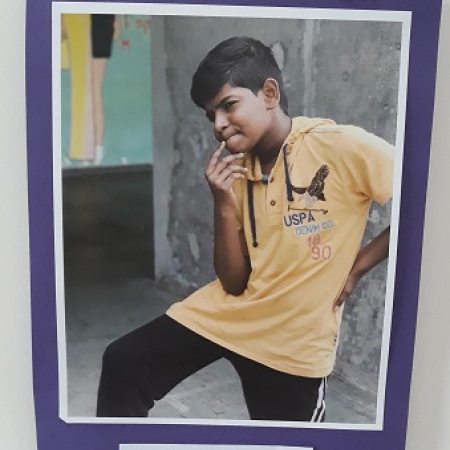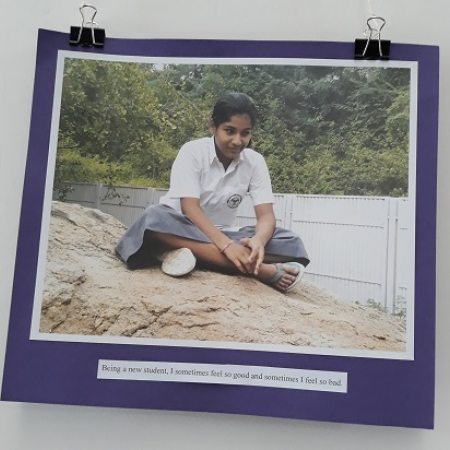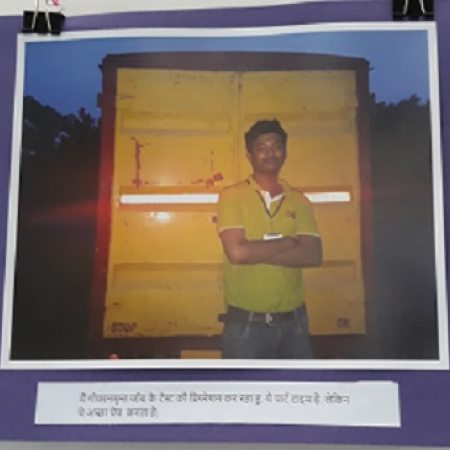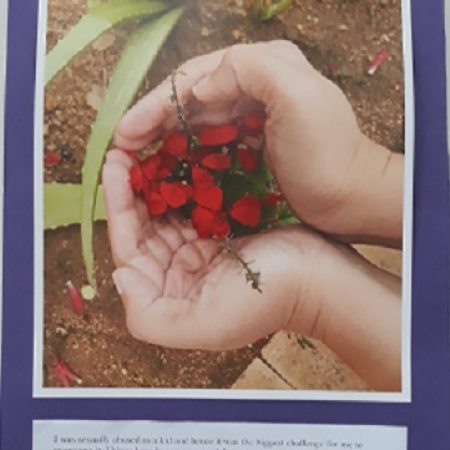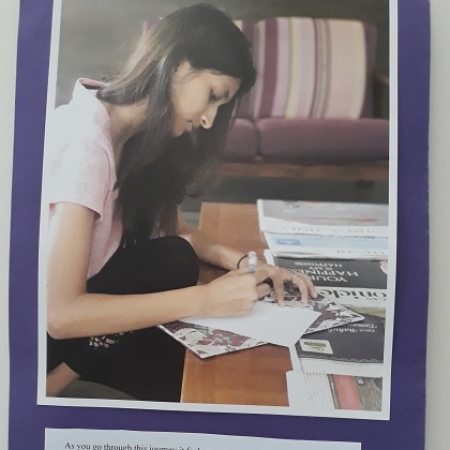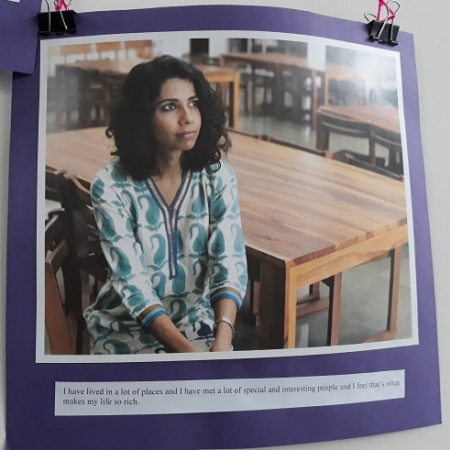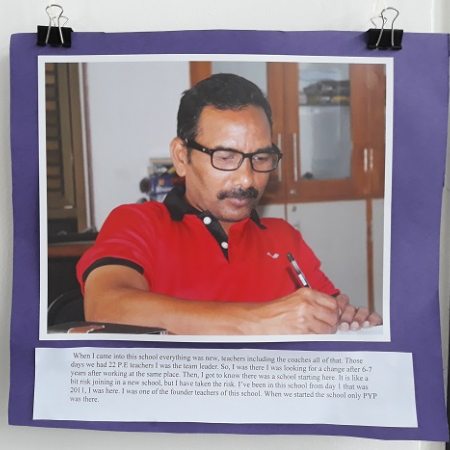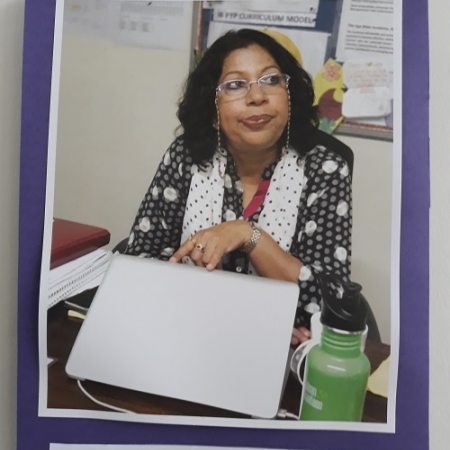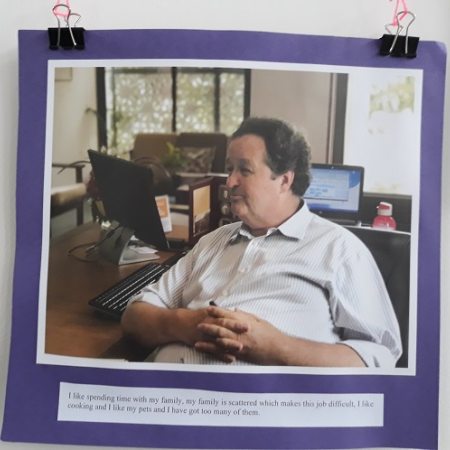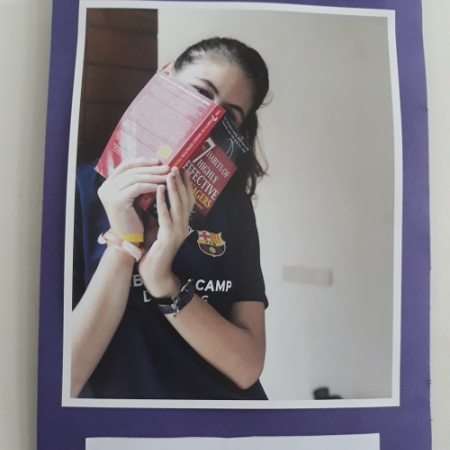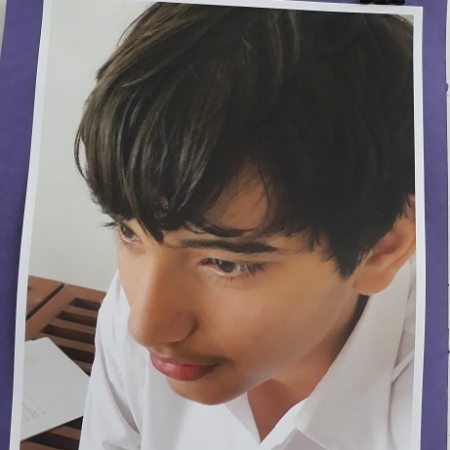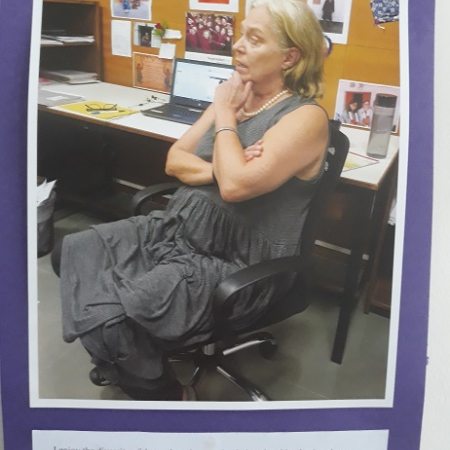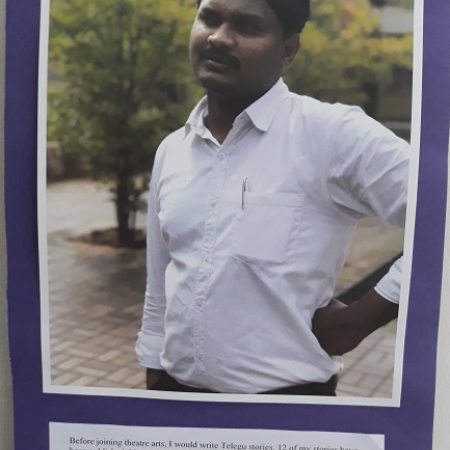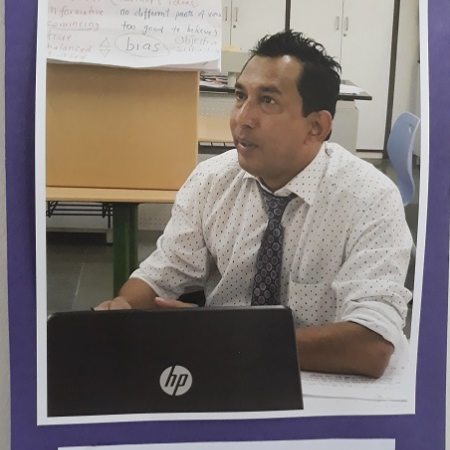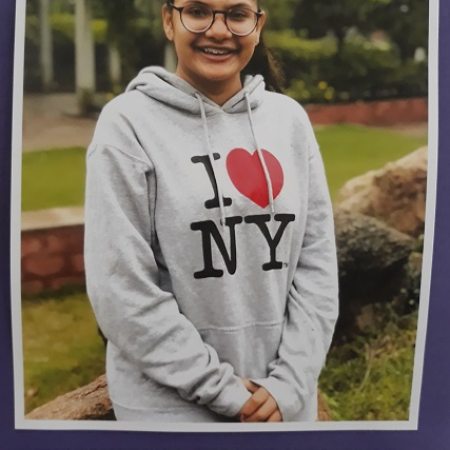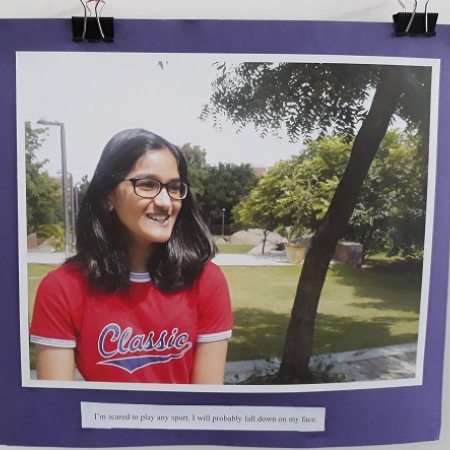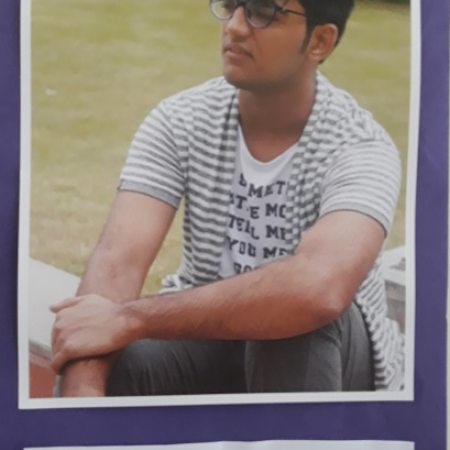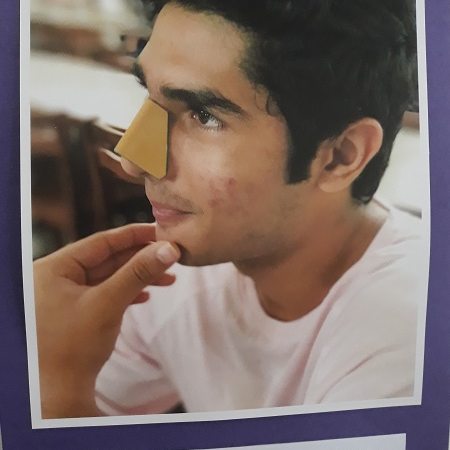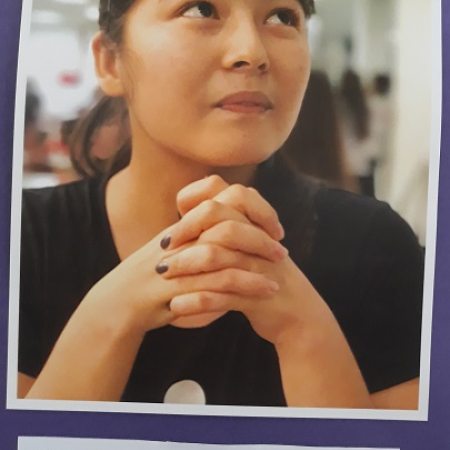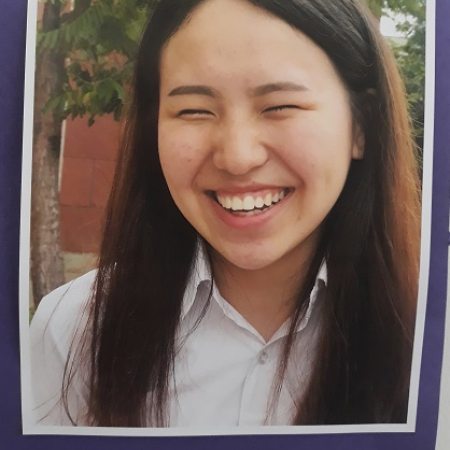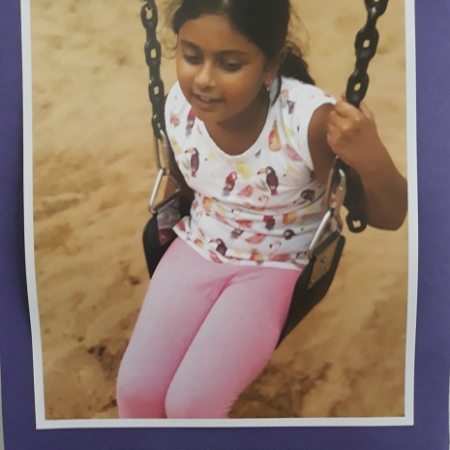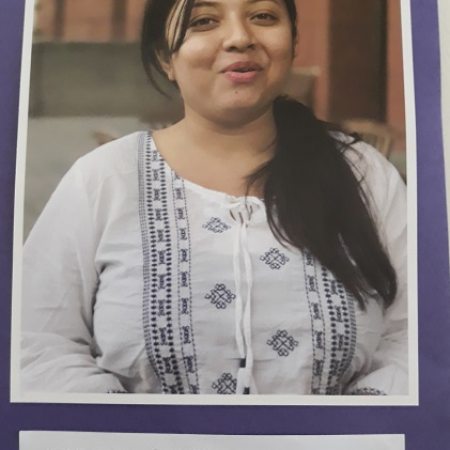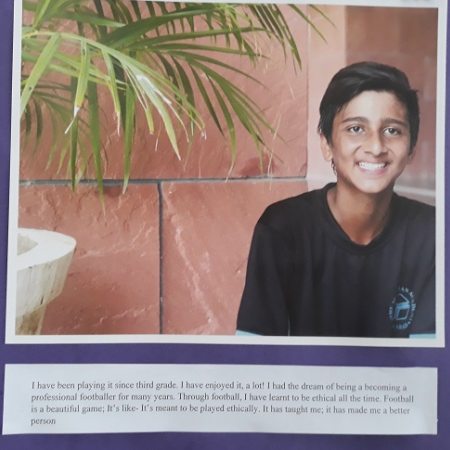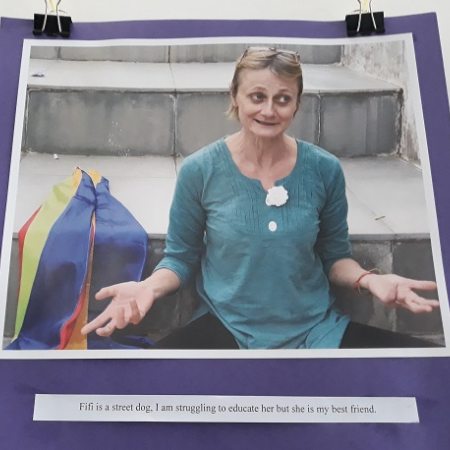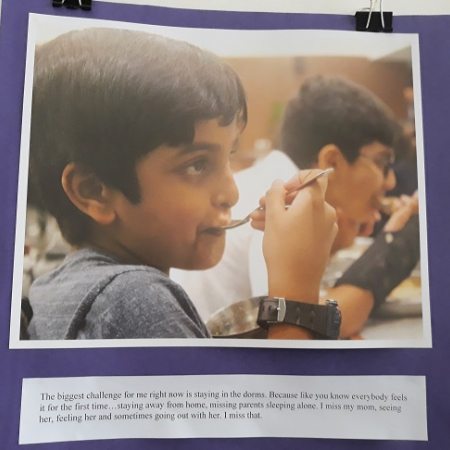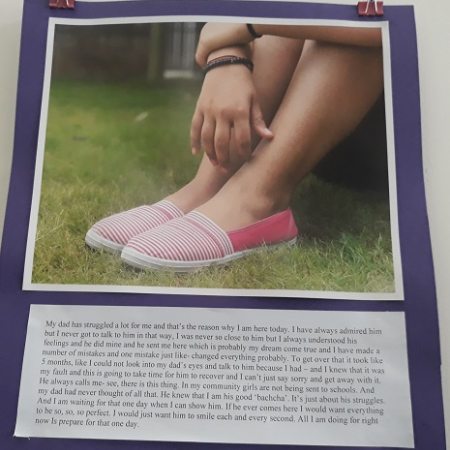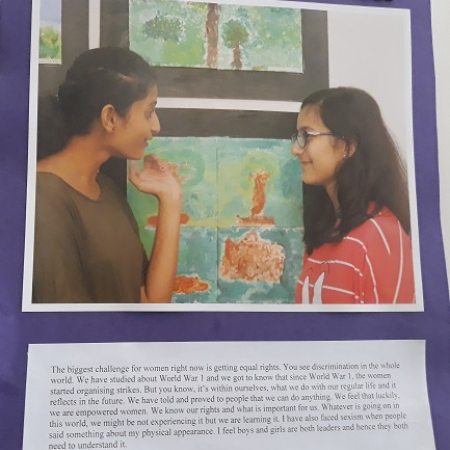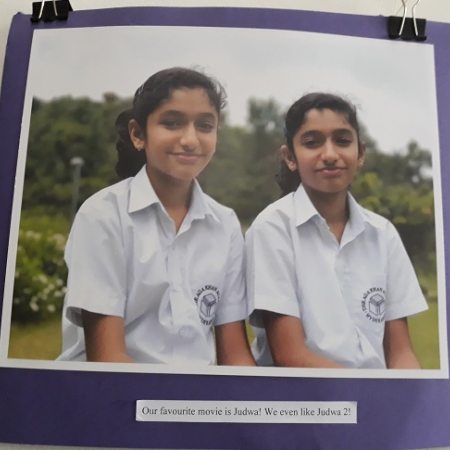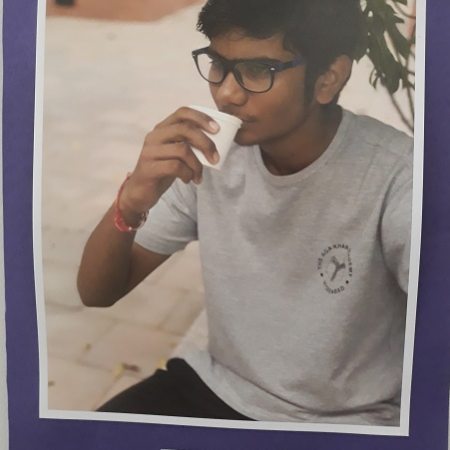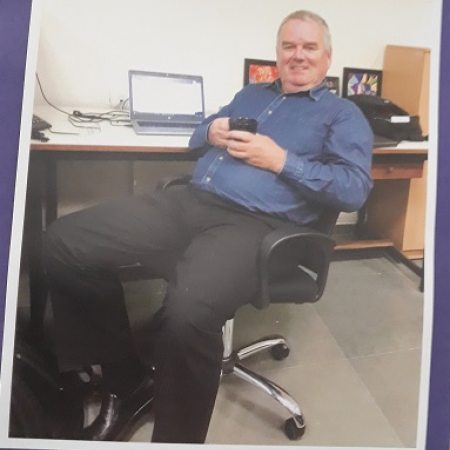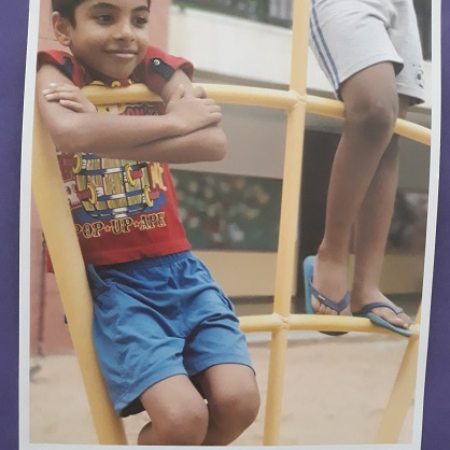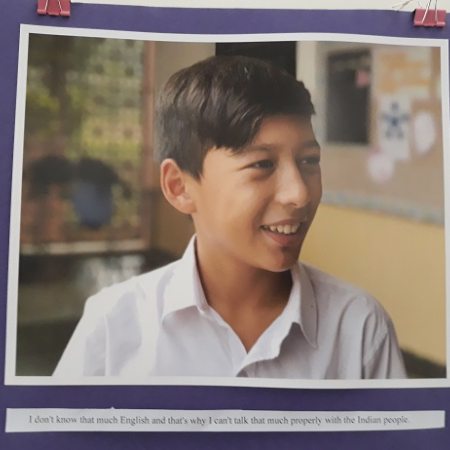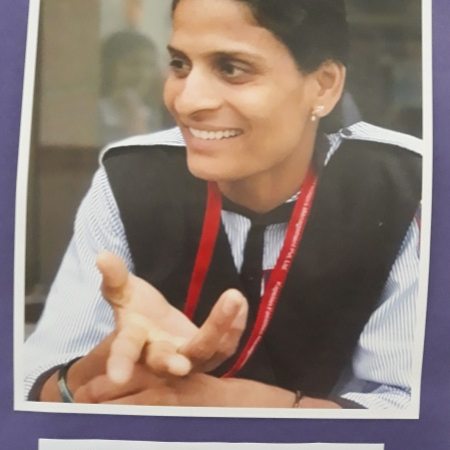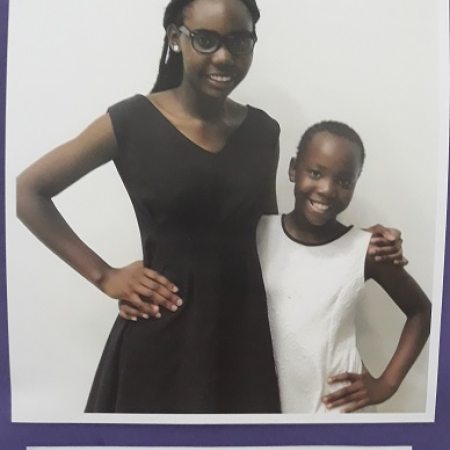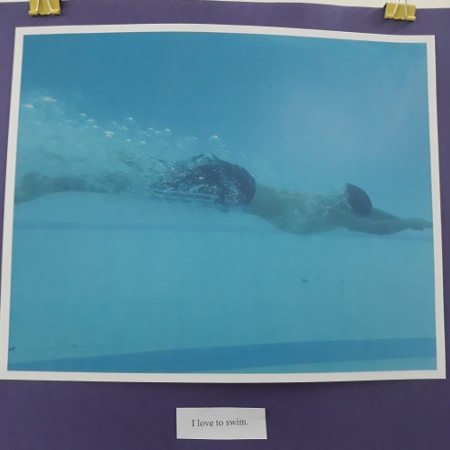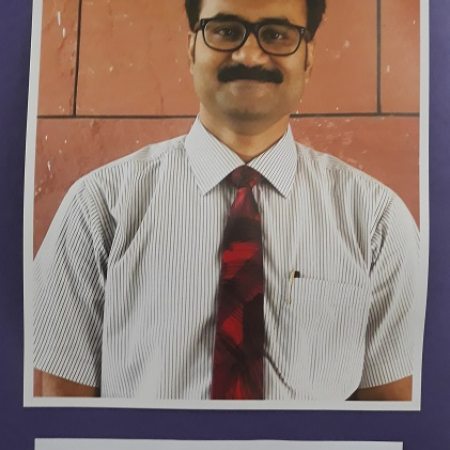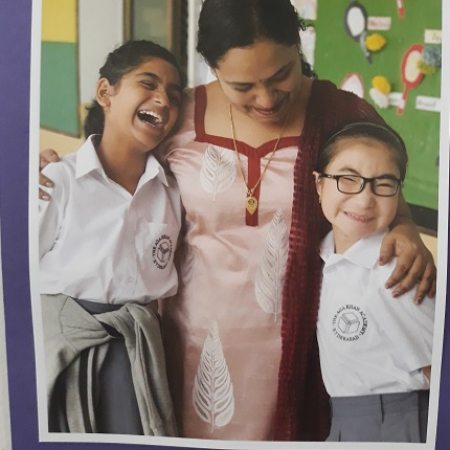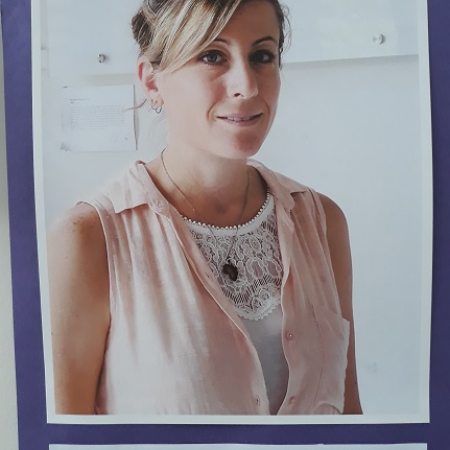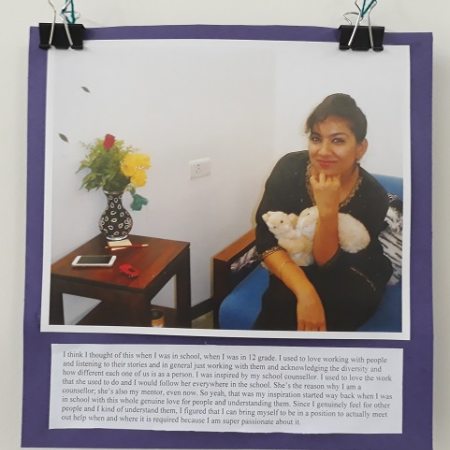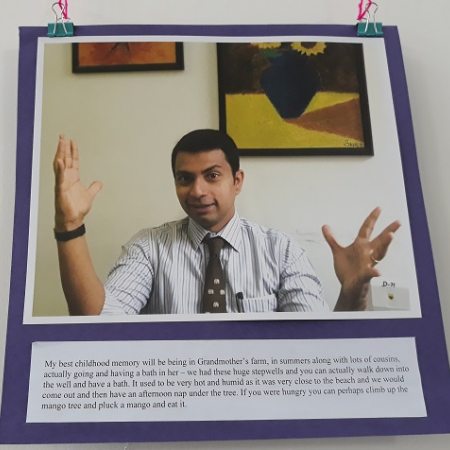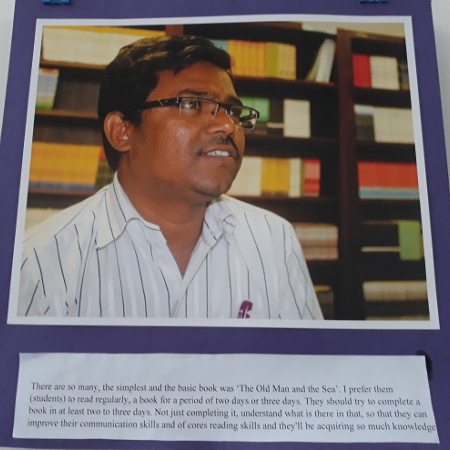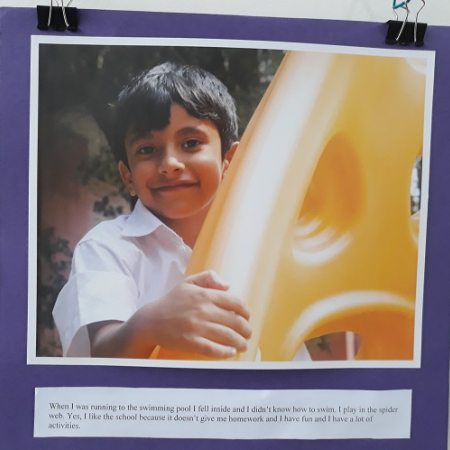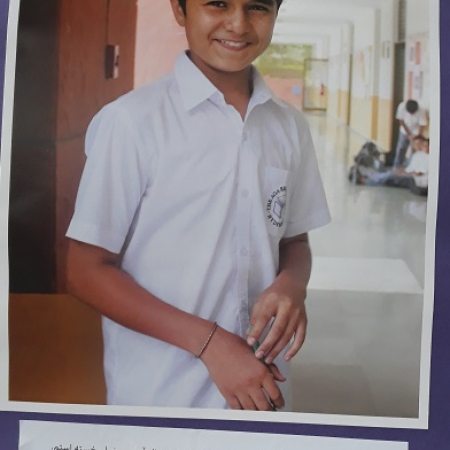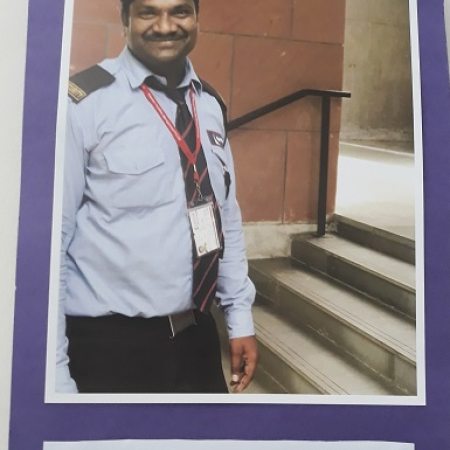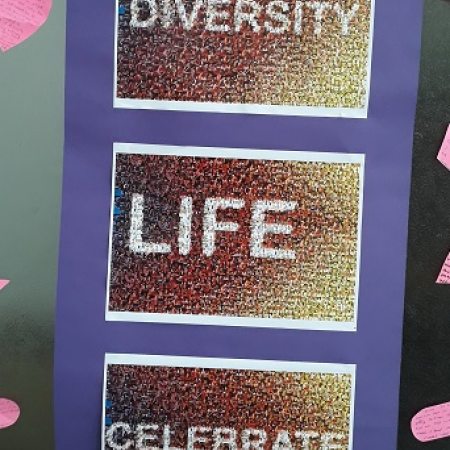Grade 10 student Adiba Binte Ahmad Tuba founded Esho Pashe Darai Foundation to fight poverty and support girls' education in Bangladesh. Her efforts earned her the 2024 Diana Award for young changemakers.
Humans of the Aga Khan Academy Hyderabad
Modelled after the photoblog ‘Humans of New York’, this exhibition conducted at the Academy in October 2017 features street portraits and interviews collected from faculty, students, administrative and support staff.
His Highness the Aga Khan's birthday - Thursday 13th December
In honour of our founder's birthday, the Academy will close early. Students & staff will depart at 1pm.
Meet Our School Community
The students, faculty and parents of the Aga Khan Academy are a socially conscious group of people committed to the development of their communities, their nation and civil society in the world at large. They understand that knowledge is a lifelong process of inquiry that leads to intellectual and personal growth. In this section we offer vignettes of members of the Academy family who are driven by the common goal of making a positive contribution to their society.
View spotlights on:
Welcome to the Aga Khan Academy Hyderabad
Multimedia
A better world through education: The Aga Khan Academies
Recent News
Faatiha Aayat, a Grade 8 student at the Aga Khan Academy Dhaka, is working as a youth advocate for children’s rights and environmental sustainability. Since childhood, she has been amplifying the voices of the marginalised with a mission to leave the world better than she found it.
Grade 10 Aga Khan Academy Dhaka students presented their projects at the annual Personal Project Exhibition on 17 February.
Pinto Belo João: A determined teacher and a collaborative planner
“Being a teacher is not easy, because we have to teach and learn every day. I chose a career in teaching because I like to share what I know with others, especially young people, to help them to overcome the challenges in life. Being a teacher is like taking care of something special, so I decided to take care of that special thing, walking together in order to discover the world around us.”
Pinto Belo João is a grade 2 teacher at the Aga Khan Academy in Maputo. Born in Maputo, Mozambique, Pinto attended a teacher training course in Matola in 2007 where he became a primary teacher and then attended Pedagogical University in 2011 to study education. He came to the Academy as part of the Teacher Preparation Programme (TPP), which was established by the Aga Khan Academies to train recent teacher graduates to become International Baccalaureate (IB) teachers.
“Honestly I didn’t know many things about the Academy before I joined, but I always was eager to learn and grow professionally,” says Pinto. Through the Aga Khan Academy, Pinto says he has grown professionally in terms of learning new approaches to teaching and learning, trying new things and giving himself a chance to learn more. “Through professional development, the Academy helped me become a more effective teacher and a collaborative planner,” he says proudly.For Pinto, the most rewarding aspect of the Aga Khan Academy is teaching while surrounded by experts. This environment has given him the opportunity to try new things and granted him time to reflect on teaching strategies. This has been both valuable and powerful for Pinto as it allowed him to share experiences related to classes and receive guidance and support from others. What Pinto really likes about the Academy is the integration of the Aga Khan Curricular Strands. “In my opinion these Strands make us unique and different from others,” he says.
Reflecting on enlightening experiences at the Academy, Pinto narrates a particular day when he was teaching mathematics through games. He says that while he was giving instructions on how to play the game he was surprised to see the students already playing the game before he could even finish explaining. “I learned something that day: we should never underestimate our students. Sometimes we think that we have to teach something, but the students already know it. We need to be careful in our approaches,” Pinto remarks.
In this way, Pinto has learnt profoundly from his students and feels that the teacher-student relationship, reinforced by trust, is of the utmost importance. “We need to establish trust so that the process runs toward success both inside and outside the classroom,” he says.Relationships in the classroom must also involve parents – Pinto knows the importance and necessity of parental involvement in the education of their children. He regularly updates the parents about what they do in class and about their school trips – he also ensures that he shows parents the newsletter with stories of learning from the classroom. Some of the homework Pinto assigns includes parent personal experiences that they can share with their children.
At the Academy, Pinto says they try as much as they can to involve all students in activities and give each of them a role in groups to make them appreciate each other’s abilities. “By promoting activities like social community, [this] makes the students reflect on their own actions,” he remarks. Pinto explains that students come from different backgrounds and nationalities and that this is what makes the residential environment multicultural and promotes pluralism. When the students are exposed to this environment, Pinto says, “They learn more from each other and respect diversity. It is a great experience for them.” Ensuring a climate of pluralism on campus is not an easy task, Pinto says. “But through student’s responsibilities, we can ensure that they are working together.”
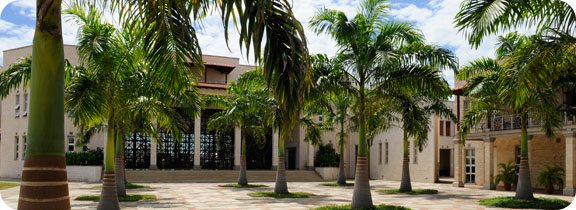
Academy Campuses
The campus of each Aga Khan Academy is architect designed and purpose built, and features exceptional facilities for all aspects of student life. Each campus is designed by renowned architects and is tailored both to meet the needs of the school and to maximise the potential of the site.
Site selection and design
Site selection is a complex process that takes into account a number of factors. These include the urban context of the site, accessibility, infrastructure support and options for long-term expansion.
The site must be able to provide an environment that will be conducive to learning and living. It should also have the potential for creating a space that is inspiring and special for those who live, study and visit there.
The design process for an Academy campus takes into account best practices in facility design. This includes construction techniques that allow spaces to be used for multiple purposes, and classroom environments that are conducive to interactive learning.
Extensive facilities
Each Academy includes the following academic and resource areas:
- age and subject-appropriate classrooms
- well-equipped science and computer laboratories
- library and resource centres
- art and music rooms
- theatre
- design and technology workshop
- multipurpose hall
- religion and culture room
- career counselling facility
- Commons building, which houses the dining hall and an array of spaces for school activities. It is designed to be the hub of student activity, serving as the Academy’s main space for major school functions, including music and drama performances and public lectures.
The sports facilities are extensive and include:
- swimming pools
- sports fields, for example for soccer, hockey and athletics
- gymnasium for indoor sports such as basketball, badminton, volleyball, gymnastics
- tennis court, cricket pitch or ice-skating rink, as appropriate.
Residential accommodation
Residential facilities have been designed to accommodate students and dorm parents (teachers who have been selected and trained to live in the faculty apartments in the student residences).
Accommodation is available for Academy community members from both within the country and overseas, as well as those visiting or on exchange from other Academies. Additional teachers' quarters on campus house both resident and visiting faculty along with their families.
Personal Project Final Exhibition
Come celebrate the amazing work done by our Year 10 students on 03 Feb. from 11 am - 4 pm.
Semester 1 Awards Ceremony
Let's celebrate the achievements and hard work of our students from Semester 1. Thursday 02 from 3-4 pm at the Commons.
Personal Project Final Exhibition
Join us on Feb 2 as we celebrate the acheivements of our Year 10 students. In the Commons and SS library from 2-4:30 pm.

